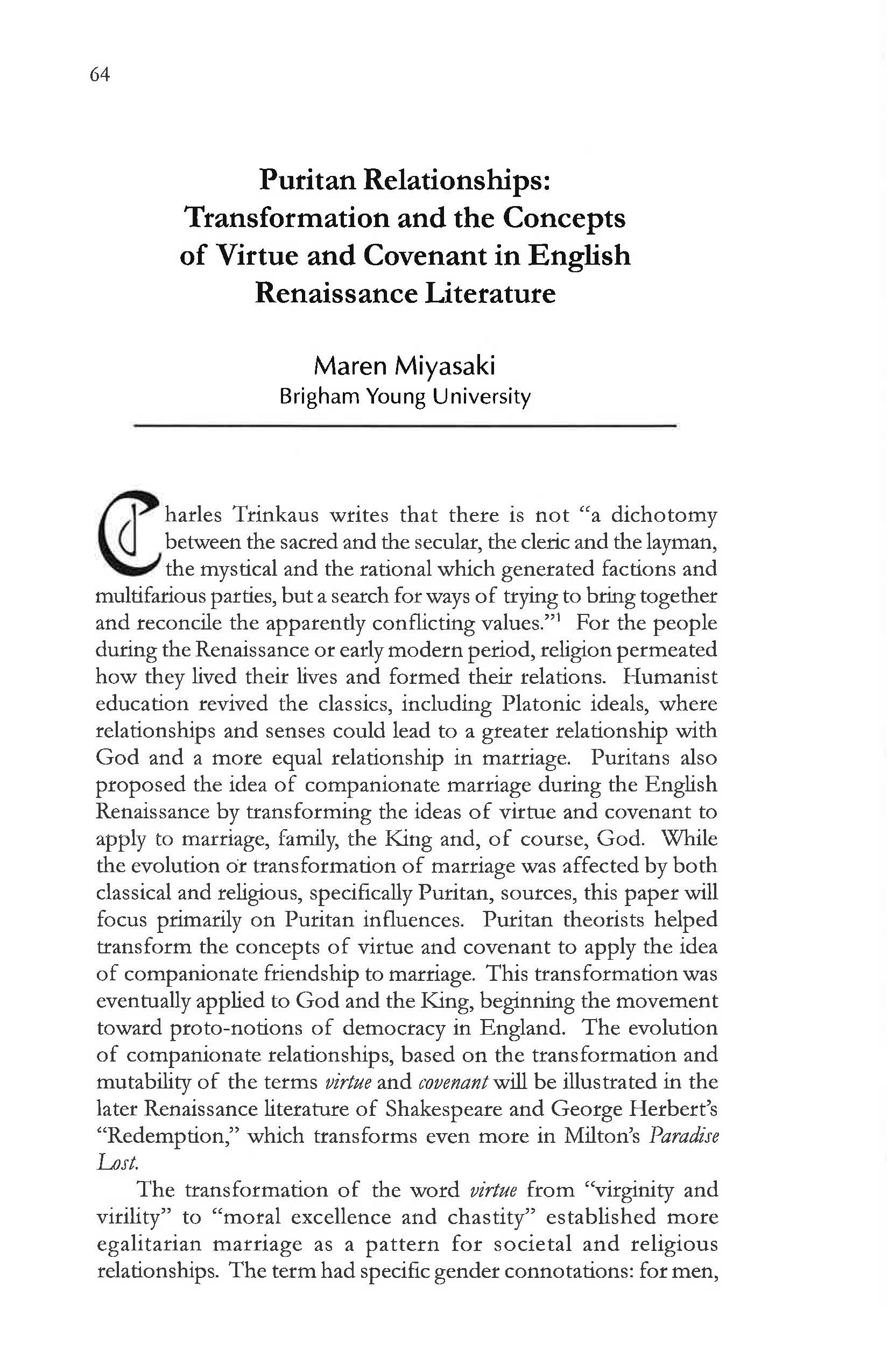Puritan Relationships: Transformation and the Concepts of Virtue and Covenant in English Renaissance Literature
Main Article Content
Abstract
Charles Trinkaus writes that there is not “a dichotomy between the sacred and the secular, the cleric and the layman, the mystical and the rational which generated factions and multifarious parties, but a search for ways of trying to bring together and reconcile the apparently conflicting values.”1 For the people during the Renaissance or early modern period, religion permeated how they lived their lives and formed their relations. Humanist education revived the classics, including Platonic ideals, where relationships and senses could lead to a greater relationship with God and a more equal relationship in marriage. Puritans also proposed the idea of companionate marriage during the English Renaissance by transforming the ideas of virtue and covenant to apply to marriage, family, the King and, of course, God. While the evolution or transformation of marriage was affected by both classical and religious, specifically Puritan, sources, this paper will focus primarily on Puritan influences. Puritan theorists helped transform the concepts of virtue and covenant to apply the idea of companionate friendship to marriage. This transformation was eventually applied to God and the King, beginning the movement toward proto-notions of democracy in England. The evolution of companionate relationships, based on the transformation and mutability of the terms virtue and covenant will be illustrated in the later Renaissance literature of Shakespeare and George Herbert’s “Redemption,” which transforms even more in Milton’s Paradise Lost.
